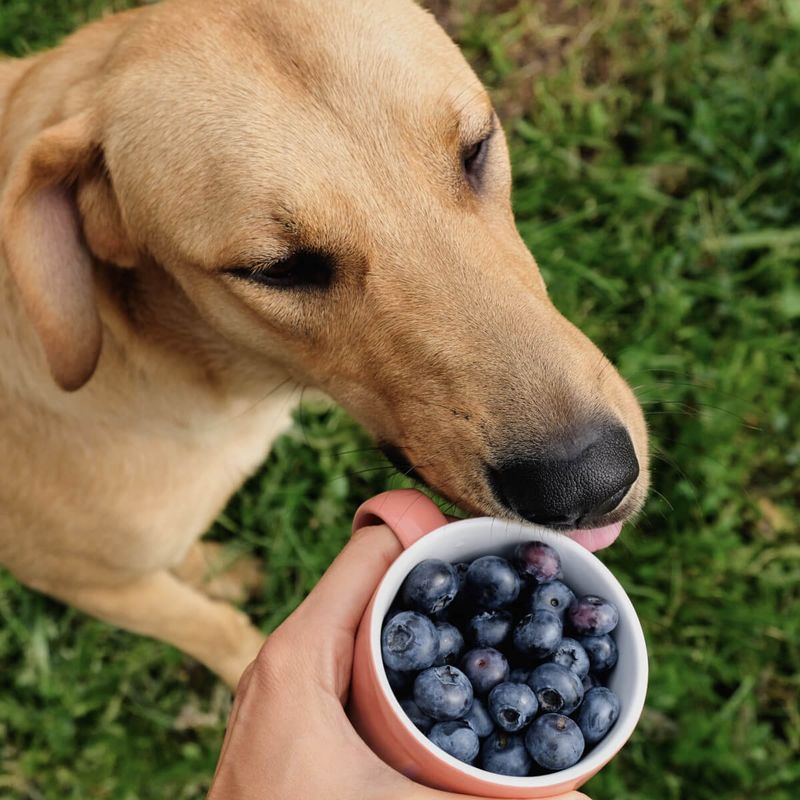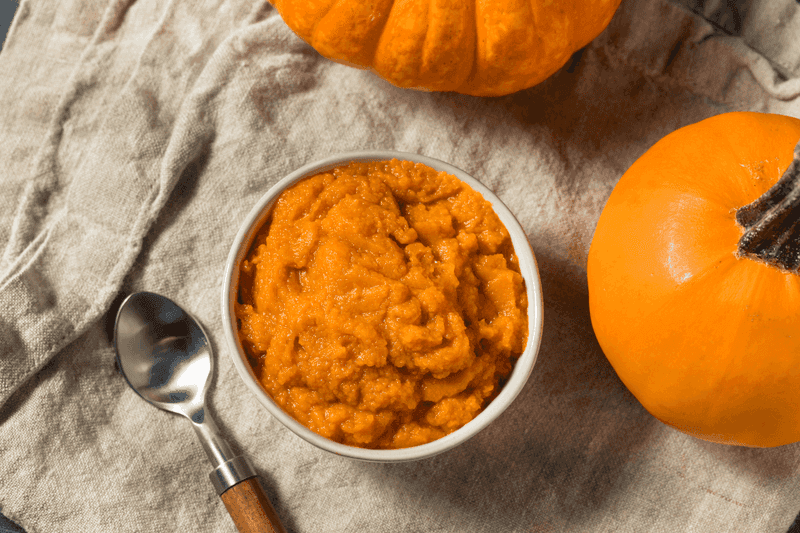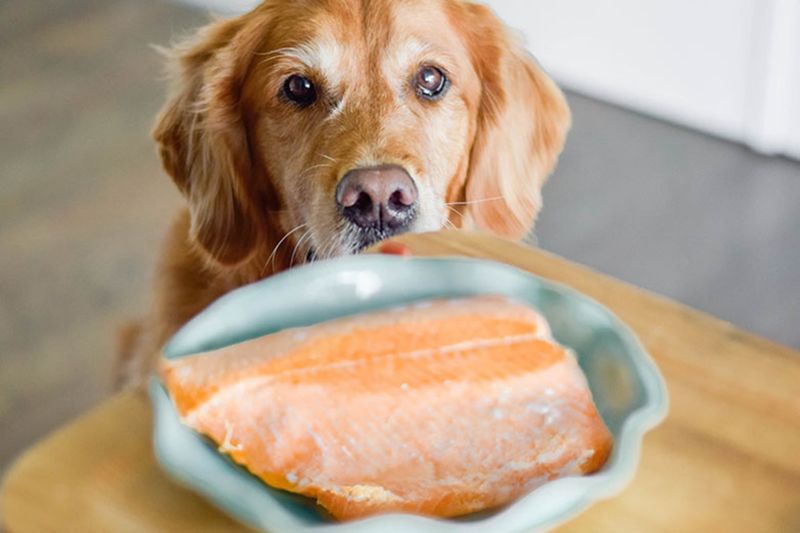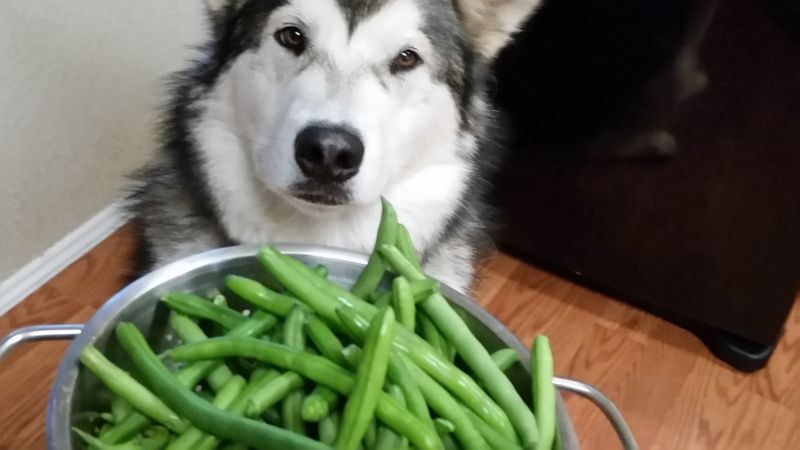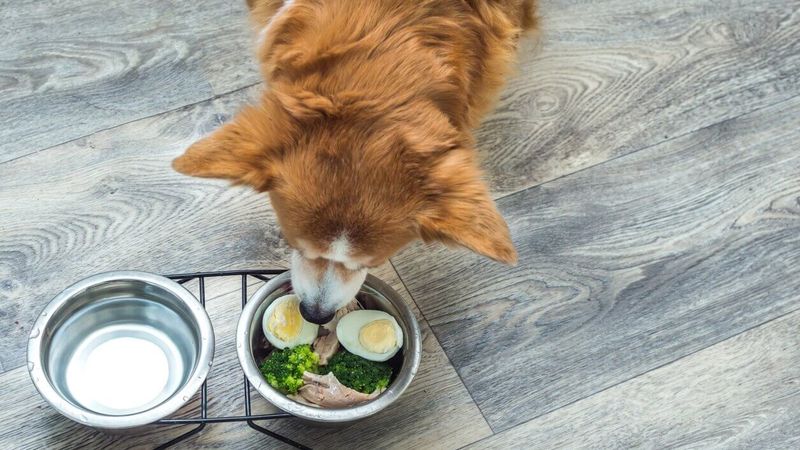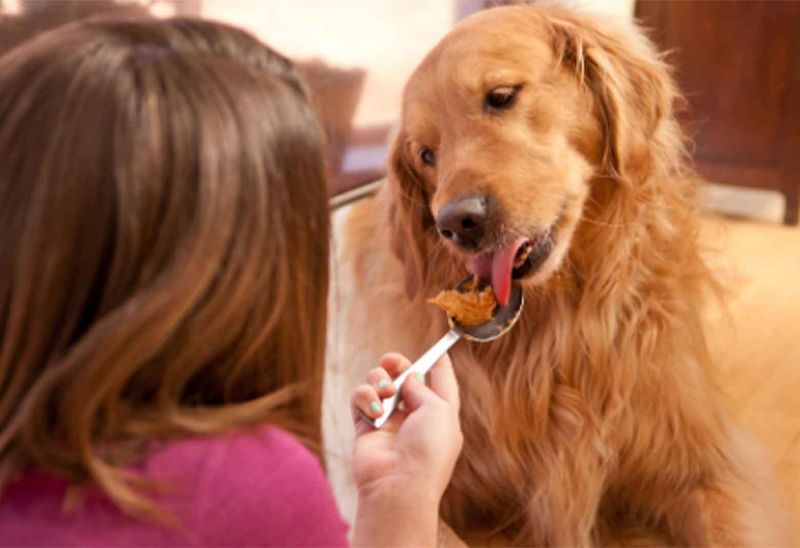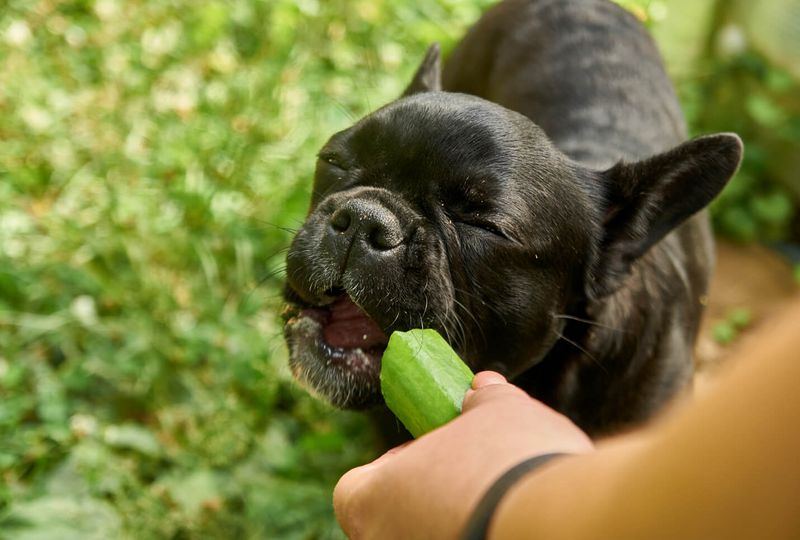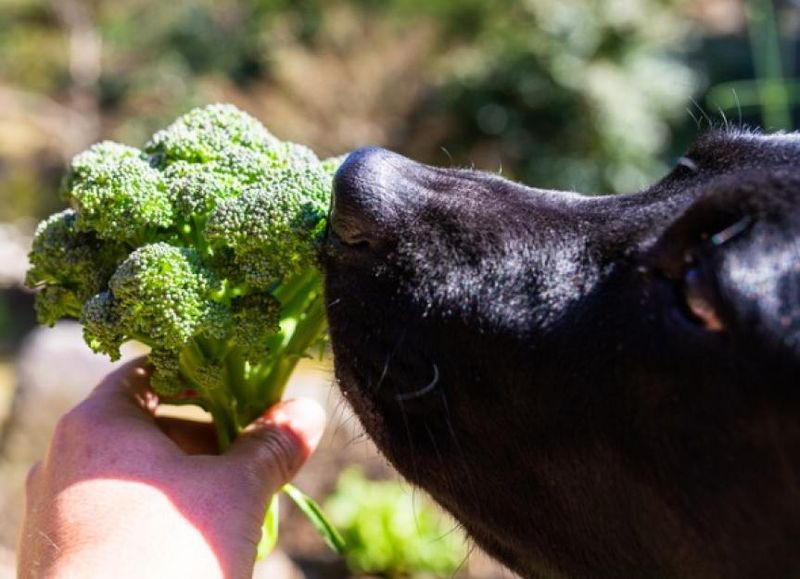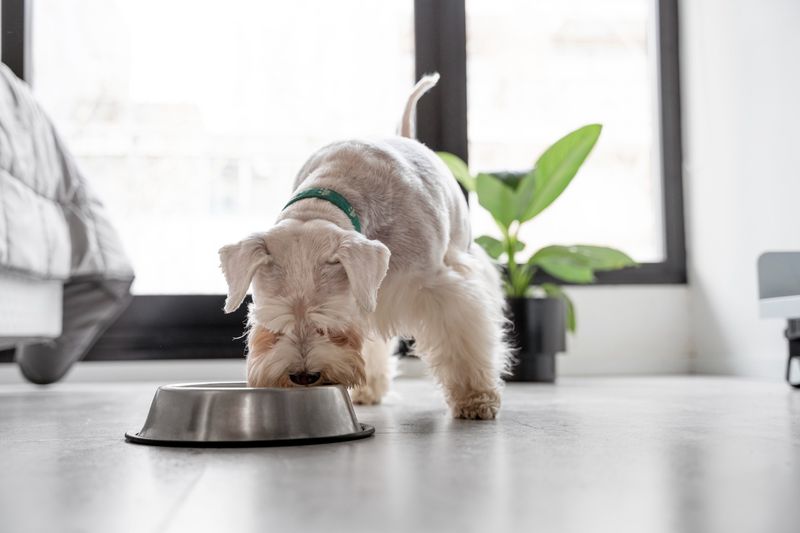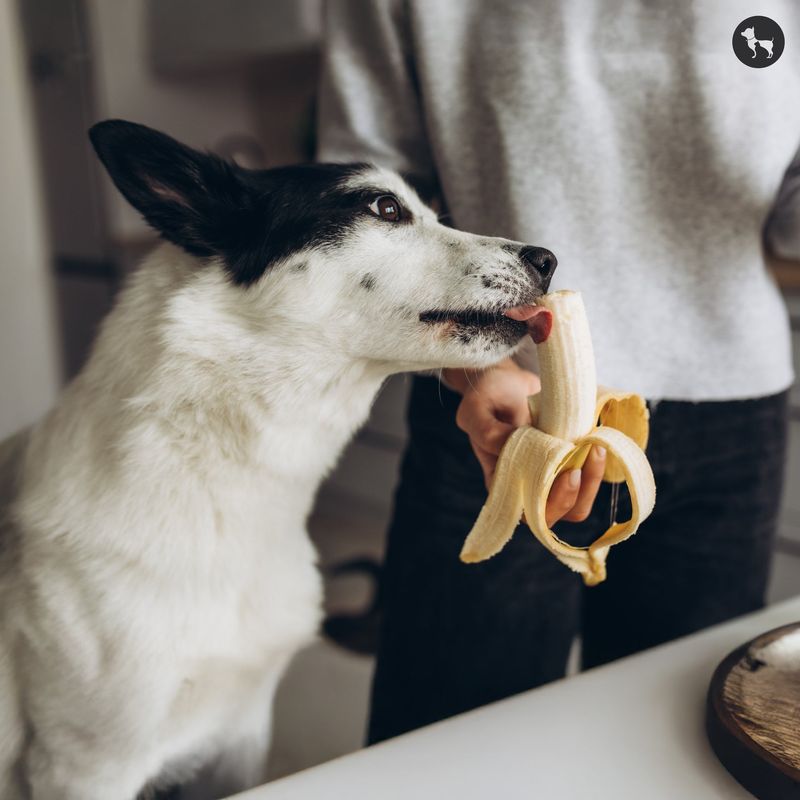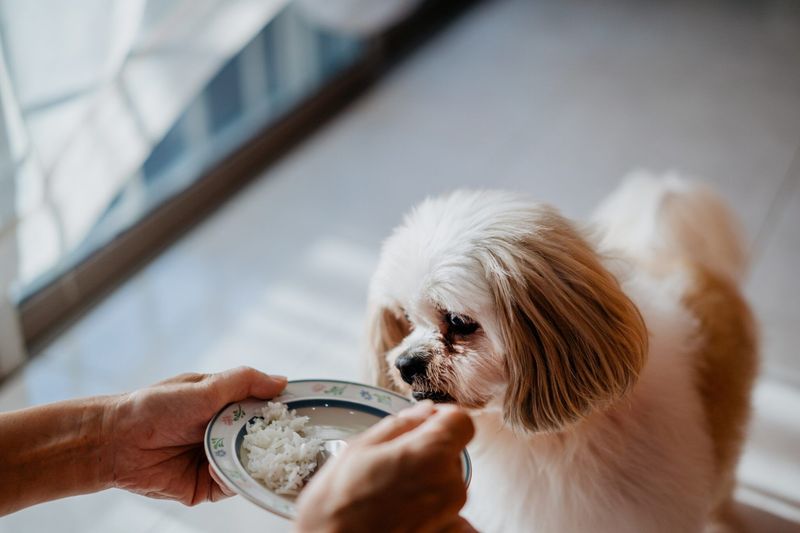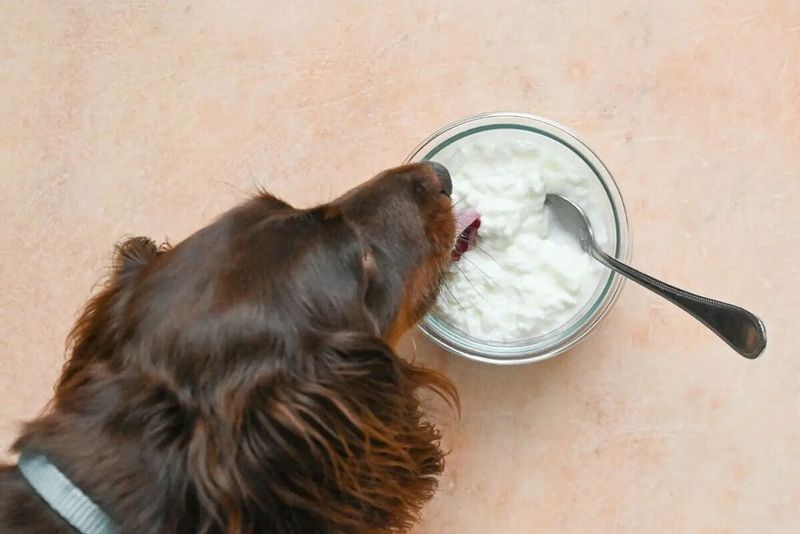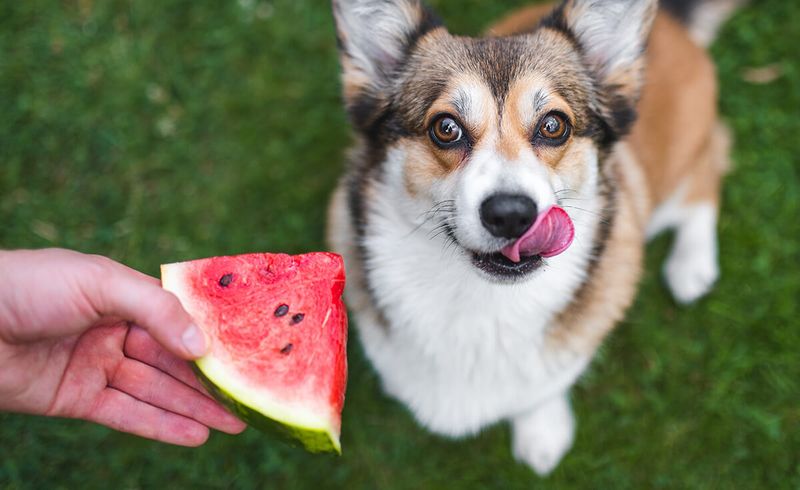16 Human Foods You Didn’t Know Are Actually Great for Dogs
We all love sharing treats with our furry friends, but many human foods can be harmful to dogs. Thankfully, there are plenty of healthy options from your kitchen that can actually benefit your pup.
These nutritious human foods can boost your dog’s health, provide essential vitamins, and serve as delicious alternatives to store-bought treats. Your four-legged friend will thank you for these tasty and wholesome additions to their diet!
1. Blueberry Bonanza for Canine Health
These tiny blue powerhouses pack an incredible nutritional punch for your pup. Loaded with antioxidants, vitamins C and K, and fiber, blueberries help fight inflammation and support your dog’s immune system.
Many veterinarians recommend blueberries as a low-calorie training treat that won’t contribute to weight gain. Their natural sweetness appeals to most dogs, making them an easy healthy snack to introduce.
For maximum benefit, serve them fresh and washed, or frozen for a cooling summer treat. Just remember to introduce them gradually and watch for any digestive changes, as with any new food addition.
2. Plain Pumpkin: A Digestive Miracle Worker
Cooked, plain pumpkin (not the sugary pie filling) works wonders for canine digestive systems. This orange superfood contains fiber that can help regulate both diarrhea and constipation in dogs, making it a versatile remedy for tummy troubles.
Packed with vitamins A, E, and C, pumpkin supports eye health, immune function, and can even help your dog maintain a healthy coat. The beta-carotene provides additional antioxidant benefits that fight cellular damage.
Simply add a tablespoon or two to your dog’s regular food. Most pups enjoy the mild, sweet taste, and you’ll appreciate having this natural digestive aid in your pet care toolkit.
3. Crunchy Carrots: Nature’s Dental Chews
Raw carrots serve as natural toothbrushes for your canine companion. The crunchy texture helps scrape away plaque while your dog enjoys this sweet, satisfying snack. Many dogs love the distinctive crunch and naturally sweet flavor.
Beyond dental benefits, carrots deliver beta-carotene, fiber, vitamin K, and potassium. These nutrients support everything from eye health to digestive function. The low calorie count makes carrots perfect for dogs watching their weight.
Serve them raw as treats, frozen for teething puppies, or lightly steamed for senior dogs. Cut them into appropriate sizes to prevent choking hazards – sticks for larger breeds, coins or shreds for smaller pups.
4. Salmon: The Brain-Boosting Fish
Fully cooked, boneless salmon offers incredible health benefits for your four-legged friend. Rich in omega-3 fatty acids, this fish supports brain development, reduces inflammation, and promotes a lustrous, healthy coat that shines with vitality.
The high-quality protein in salmon helps maintain muscle mass while providing essential amino acids. Many veterinarians recommend it for older dogs with joint issues since the anti-inflammatory properties can ease discomfort and improve mobility.
Always serve salmon thoroughly cooked without seasoning, removing all bones carefully. A small portion once or twice weekly can significantly impact your dog’s overall health, especially their skin condition and cognitive function.
5. Sweet Potatoes: Vitamin-Packed Treats
Orange-fleshed sweet potatoes deliver a powerful nutritional boost to your canine’s diet. Brimming with vitamins A, C, and B6, these root vegetables support everything from eye health to immune function while adding dietary fiber that aids digestion.
Unlike regular potatoes, sweet potatoes have a lower glycemic index, making them suitable for dogs who need to watch their blood sugar levels. Their natural sweetness appeals to most dogs, who happily gobble them up as treats or meal toppers.
Serve them peeled, cooked, and unseasoned – baked, steamed or boiled all work well. Avoid raw sweet potatoes, which can be difficult to digest, and never add butter, salt, or other seasonings that might upset your pup’s stomach.
6. Crisp Apples: Fiber-Rich Refreshment
Crisp apple slices provide a refreshing, hydrating snack that most dogs eagerly accept. The satisfying crunch and natural sweetness make apples an excellent alternative to processed treats, especially during training sessions.
Apples contain vitamins A and C along with fiber that supports digestive health. The crunchy texture can help clean teeth, while the water content provides hydration. For older dogs, softer varieties like Gala or Golden Delicious may be easier to chew.
Always remove seeds, stems, and cores before serving, as apple seeds contain small amounts of cyanide. Slice into appropriate pieces based on your dog’s size to prevent choking, and introduce gradually to ensure your pup’s digestive system adjusts well.
7. Green Beans: Low-Calorie Volume Food
Fresh green beans might not seem exciting, but many dogs go crazy for these crunchy veggies! Whether served raw, steamed, or frozen, green beans provide a satisfying crunch without adding many calories to your pup’s diet.
Veterinarians often recommend the “green bean diet” for overweight dogs – gradually replacing a portion of kibble with green beans to reduce calories while maintaining volume.
The fiber content helps dogs feel full despite consuming fewer calories. Beyond weight management, green beans deliver vitamins K and C, manganese, and folate. Just ensure they’re plain – no salt, butter, or seasonings – and cut into manageable pieces for smaller dogs to prevent any choking hazards.
8. Protein-Packed Eggs: The Complete Meal
Scrambled, hard-boiled, or poached – properly cooked eggs provide one of nature’s most complete protein sources for your canine companion. The amino acid profile supports muscle development and repair, making eggs particularly beneficial for active or growing dogs.
Beyond protein, eggs deliver essential fatty acids that promote healthy skin and coat. The choline content supports brain development and cognitive function in dogs of all ages.
Many veterinarians recommend eggs as a digestible protein source for dogs with sensitive stomachs. Always serve eggs fully cooked without butter, oil, salt, or seasonings.
While the occasional raw egg is safe for most dogs, cooking eliminates any risk of salmonella and makes the protein more bioavailable for your pup’s body.
9. Peanut Butter: The Ultimate Canine Motivator
Nothing captures a dog’s attention quite like peanut butter! This protein-rich spread contains healthy fats, vitamin B, niacin, and vitamin E that support your dog’s overall health.
The sticky texture makes it perfect for disguising medications or filling puzzle toys. Peanut butter provides long-lasting entertainment when spread inside a Kong toy or lick mat.
This mental stimulation helps reduce anxiety and boredom, especially when you’re away from home. The protein content makes it more satisfying than many commercial treats.
Always choose unsalted, xylitol-free varieties – this artificial sweetener is extremely toxic to dogs. Natural or organic options with minimal ingredients are best, and moderation is key due to the high fat content.
10. Cool Cucumber: Hydrating Summer Treat
During hot summer days, cucumber slices offer refreshing hydration for your panting pup. With a water content exceeding 95%, cucumbers help combat dehydration while providing virtually no calories – perfect for dogs on weight management plans.
Beyond hydration, cucumbers contain phytonutrients that help freshen breath and reduce bacteria in your dog’s mouth. The crunchy texture is satisfying for dogs who enjoy chewing, while the mild flavor appeals to even picky eaters.
Serve cucumbers raw, washed, and sliced into appropriate sizes. Some dogs prefer them peeled, while others enjoy the extra crunch of the skin. Try freezing cucumber slices for an even more refreshing treat during summer months!
11. Broccoli Florets: Nutrient-Dense Morsels
Those little green trees aren’t just for humans! Broccoli florets contain impressive amounts of vitamin C, fiber, and cancer-fighting compounds that benefit your dog’s health. The unique texture provides sensory stimulation that many dogs find intriguing.
Steamed broccoli is easier for dogs to digest than raw, breaking down the tough plant fibers while preserving most nutrients. The fiber content supports healthy digestion and can help regulate bowel movements.
For picky eaters, try mixing small amounts with their regular food. Moderation is crucial with broccoli – excessive amounts can cause gastric irritation due to isothiocyanates. Keep broccoli treats under 10% of your dog’s daily food intake, and introduce gradually to avoid digestive upset.
12. Plain Oatmeal: Soothing Breakfast for Sensitive Stomachs
Cooked plain oatmeal provides gentle nutrition for dogs with sensitive digestive systems. The soluble fiber forms a gel-like substance during digestion that can soothe irritated intestinal tracts and help firm up loose stools.
Beyond digestive benefits, oatmeal contains linoleic acid, a type of omega-6 fatty acid that promotes healthy skin and reduces itching – particularly helpful for dogs with certain skin conditions.
The B vitamins support overall cellular function and energy production. Always serve oatmeal cooked with water (no milk) and completely plain – no sugar, honey, fruit, or flavorings.
Cool thoroughly before offering to your dog, and start with small amounts to ensure it agrees with their system before making it a regular treat.
13. Potassium-Rich Bananas: Nature’s Energy Bar
Yellow bananas offer a natural energy boost packed with essential minerals for your active dog. Rich in potassium, bananas help maintain proper heart and muscle function while supporting healthy blood pressure.
The natural sugars provide quick energy for active play sessions. The soft texture makes bananas perfect for senior dogs or those with dental issues. Many dogs enjoy the sweet taste, making bananas an excellent high-value treat for training.
Freezing banana slices creates a cooling summer treat that extends enjoyment time. Moderation matters with this fruit due to its sugar content – a few slices for small dogs or half a banana for larger breeds is plenty.
The fiber content can cause constipation if overfed, so balance with adequate water intake.
14. Plain Cooked Chicken: Lean Protein Foundation
Boiled or baked chicken without skin, bones, or seasonings provides high-quality, easily digestible protein that supports muscle maintenance. For dogs recovering from illness or with sensitive stomachs, plain chicken often remains appealing when other foods are rejected.
The lean protein in chicken helps repair tissues and support immune function without adding excessive fat to your dog’s diet. Many veterinarians recommend a temporary chicken and rice diet for dogs experiencing mild digestive upset. Always ensure chicken is thoroughly cooked and cooled before serving.
Shred or cut into appropriate sizes to prevent choking, and remove all bones which can splinter and cause serious internal damage. Store unused portions in the refrigerator for up to three days.
15. Cottage Cheese: Gentle Dairy Protein Source
Low-fat cottage cheese offers an easily digestible form of calcium and protein that most dogs tolerate well, even those with mild lactose sensitivity. The soft texture makes it particularly suitable for puppies, senior dogs, or those recovering from dental procedures.
The probiotics in cottage cheese support healthy gut flora, potentially improving digestion and nutrient absorption. For underweight dogs or those needing extra calories, cottage cheese provides nutritional density without excessive volume.
Serve plain cottage cheese with no added salt, fruit, or flavorings. Start with a small amount (1-2 tablespoons for medium dogs) to ensure your pup tolerates it well. For dogs with confirmed lactose intolerance, skip this treat in favor of non-dairy options.
16. Seedless Watermelon: Hydrating Summer Refreshment
Nothing beats watermelon for keeping your dog hydrated during hot weather! With over 90% water content, this fruit helps prevent dehydration while providing vitamins A, B6, and C.
The natural sweetness makes it an irresistible treat for most dogs. Watermelon contains lycopene, an antioxidant that helps fight cancer and reduce inflammation. The fiber content supports healthy digestion without adding many calories. For senior dogs or those with dental issues, the soft texture is easy to consume.
Always remove seeds and rind completely before serving, as these can cause intestinal blockage or upset. Cut into appropriate bite-sized pieces to prevent choking, and serve chilled (not frozen) for maximum refreshment during summer months.

